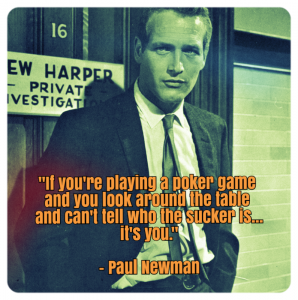 Congratulations to Richard Thaler on his 2017 Nobel Prize in Economics. The professor took some hardly veiled shots at the Preznit, but also offered some “gee, I just can’t figure it” about the stock market:
Congratulations to Richard Thaler on his 2017 Nobel Prize in Economics. The professor took some hardly veiled shots at the Preznit, but also offered some “gee, I just can’t figure it” about the stock market:
“His ratio of certitude to knowledge is nearing record highs,” Thaler said on Bloomberg Radio with Tom Keene and David Gura. “We all need a lot of humility, and especially about the economy.”
Thaler also expressed surprise that the stock market is returning good performance with few disruptions during what he sees as uncertain political times. Congress is grappling with a tax reform proposal, but infighting among Republicans has called into question whether a package will ultimately pass.“Who would have thunk that the stock market would just continue to go up” during “what has to be the most uncertain times of my lifetime,” Thaler said. “Surely it can’t be based on the certitude that there will be a massive tax cut, given the seeming inability of the Republican Congress to get their act together. So I don’t know where it’s coming from.”
Well, who knows? If you read PK, he seems clear headed about it, if full of Robert Hughes allusions. But how about this: Maybe the indices keep going up, despite the uncertainty and turmoil, because as a set of money-making wagers, they actually feed on that level of chaos. Maybe as a ruse, or cover, for the Ponzi nature of the games being plied and played. The ‘it’s all so complex and confusing, who knows how it works’ absolutely accrues to the benefit of some. See the bankster/fraudsters of 2008 and how they have ascended to far more dizzying heights in the time since, and the extent to which questions about all this convenient success equal nothing more than conspiracy theories. They don’t even bother with calling people Commies anymore.
Quite a trick.
